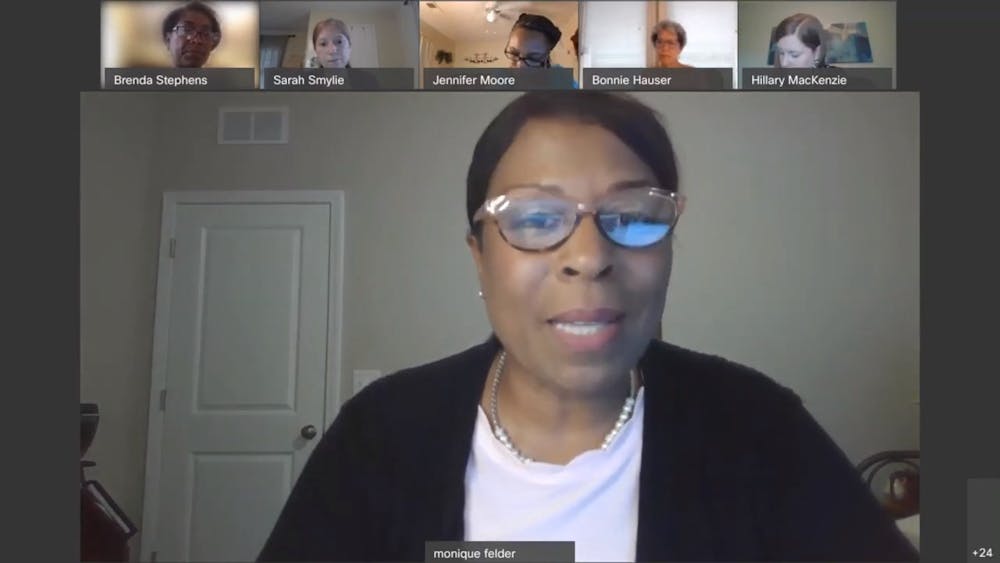Dawson said these physical hotspots will be an option for students who need to download materials or have a brief conference with their teachers.
"We definitely would not expect that our families would come to these parking lots and be sitting through lessons," she said.
Director of Exceptional Children Connie Crimmins said students with disabilities will be provided devices as needed, and teletherapy will be available.
On the subject of equity, Chief Equity Officer Dena Keeling discussed preparing staff for conversations about race, which includes teaching them to create space for student voices and help center the voices of students of color.
"We recognize that teachers might be going through their own reflection and might not have all the answers, and students know this," Keeling said. "They want teachers to speak their truth, and move in the direction of culturally relevant teaching."
Meal deliveries
After discussing meal delivery options for the first nine weeks of school, the Board motioned to prepare meals for distribution at six to eight school locations, where families will be able pick up meals for all of their students for multiple days at a time.
This is a change from the summer meal delivery program, which delivered food to 10 distribution locations. The new option was favored due to lower costs, as state transportation funds can no longer be used for this effort.
The majority of Board members said they were supportive of an option in which meals are delivered on all regular bus routes, although it proved to be even more expensive.
The Board plans to reach out to families in the coming week to explore whether different delivery locations would be beneficial in the future.
Title IX regulations
Chief Human Resources Officer Teresa Cunningham-Brown introduced interim changes to two policies related to the prohibition of discrimination, harassment and bullying, along with the complaint procedure.
To get the day's news and headlines in your inbox each morning, sign up for our email newsletters.
The changes were intended to ensure compliance with revised Title IX regulations in time for the federal deadline of Aug. 14 while staff review broader action on the six affected policies. The changes reflected the amended definition of sexual harassment and required higher standards of evidence for complaints.
The new Title IX guidelines, released by the Department of Education in May, define sexual harassment to include sexual assault, dating violence, domestic violence and stalking as unlawful discrimination on the basis of sex.
Federal guidelines previously defined sexual harassment as "unwelcome conduct of a sexual nature."
Board member Hillary MacKenzie said she has a personal moral issue with the new definition as laid out in the revisions, as she feels it loosens the consequences for sexual offenders, but reluctantly agreed to approve the changes.
“I understand that it's federal law and we could lose federal funding if we don't pass these, so I will vote in favor of them even though I am not indeed in favor of them at all,” MacKenzie said.
The rest of the board agreed, and the motion to approve the interim changes was passed unanimously.
@DTHCityState | city@dailytarheel.com




